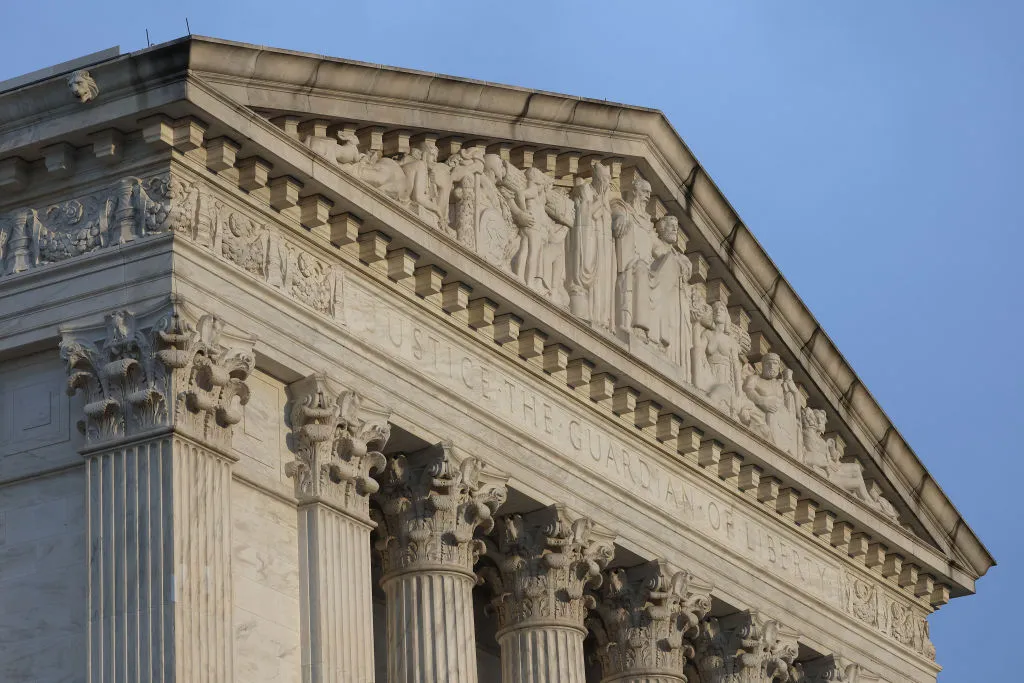Up to date on Aug. 1 at 9:03 pm.
The Supreme Court docket on Friday afternoon instructed the events in a Louisiana redistricting dispute to file new briefs on whether or not the creation of a second majority-Black congressional district violates the Structure. The justices heard oral arguments in March in Louisiana v. Callais however didn’t in the end situation a choice within the case earlier than their summer time recess started on the finish of June. As a substitute, they indicated on June 27 that an order “specifying any further inquiries to be addressed in supplemental briefing” would observe “[i]n due course.”
The case got here to the court docket as a request by Louisiana and a bunch of Black voters to reinstate a map, adopted by the Louisiana Legislature in 2024, that created a second majority-Black congressional district within the state. The 2024 map responded to a ruling by a federal district court docket holding {that a} 2022 map that contained just one majority-Black district seemingly violated Part 2 of the Voting Rights Act, which prohibits election practices that end in a denial or abridgement of the fitting to vote. The group of Black voters looking for to revive the 2024 map within the continuing now earlier than the court docket had argued within the earlier case that the 2022 map diluted the votes of Black residents, who make up roughly one-third of Louisiana’s inhabitants.
The U.S. Court docket of Appeals for the fifth Circuit upheld the federal district court docket’s ruling that the 2022 map seemingly violated the VRA, and it directed Louisiana to attract a brand new map by Jan. 15, 2024, or face the prospect that the district court docket would accomplish that as a substitute.
The Louisiana Legislature adopted a brand new map in 2024 that contained a second majority-Black district. A bunch of voters describing themselves as “non-African American” then went to federal court docket, the place they argued that the 2024 map was an unconstitutional racial gerrymander – that’s, it unconstitutionally sorted the state’s voters based mostly totally on their race. A 3-judge federal district court docket agreed, however the Supreme Court docket put that ruling on maintain, clearing the way in which for the state to make use of the 2024 map within the 2024 elections.
Louisiana had urged the Supreme Court docket to offer states “respiration room” “between the competing calls for of” the Voting Rights Act and the 14th Modification’s equal safety clause, which prohibits the federal government from treating individuals otherwise until there’s an sufficient motive. If it targeted on race, the state insisted, it did so solely to adjust to the court docket orders requiring it to create a second majority-Black district. However then its aim shifted, the state defined, to defending two high-profile Republican incumbents, Speaker of the Home Mike Johnson and Rep. Julia Letlow, who sits on the Home Appropriations Committee.
The ”non-African American” voters countered that the Legislature had “’first made the choice’ to impose the racial quota” of two majority-Black districts, “eliminating one Republican seat, and ‘solely then’ had to decide on which Republican to sacrifice.” However even when Louisiana had actually sought to adjust to the VRA, they added, that is sufficient to result in the conclusion that race was the first issue driving its choice to attract the second majority-Black district.
Over a dissent by Justice Clarence Thomas, the Supreme Court docket on June 27 introduced that it will hear arguments within the case once more through the 2025-26 time period. On Friday, the justices instructed the events to handle a selected query: whether or not Louisiana’s intentional creation of a second majority-Black district violates both the 14th Modification or the fifteenth Modification, which bars each the federal authorities and states from denying or abridging the fitting to vote “on account of race, shade, or earlier situation of servitude.” Each amendments had been enacted within the wake of the Civil Struggle in an effort to determine equality for previously enslaved individuals.
Louisiana and the Black voters who challenged the 2022 map are to file their briefs by Aug. 27, with the temporary from the “non-African American” voters to observe on Sept. 17. The state and the Black voters are to then file their reply briefs by Oct. 3.
Posted in Featured, Merits Cases
